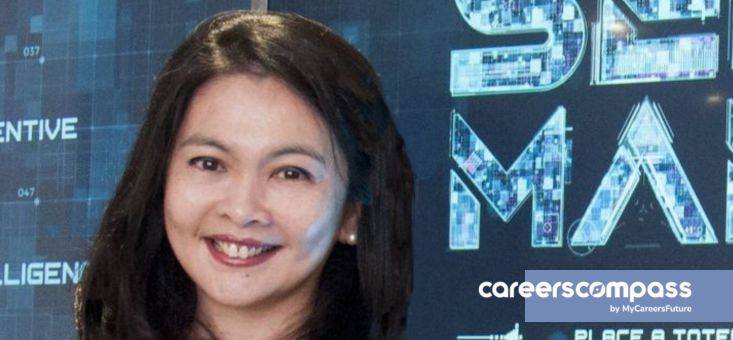Let’s face facts — Singapore’s science, technology, engineering and math (STEM) industries have had challenges over the years in attracting women into their ranks. In fact, according to a study of 738 locals by Nanyang Technological University (NTU) last year, just 58% of women who graduate with STEM degrees or diplomas go on to have related careers.
In comparison, 70% of men who hold similar qualifications are in the field.
But Singaporeans clearly have a desire to shake things up — in a survey held on the WSG Jobs & Career Advice Telegram channel, 74% of polled believe that STEM roles are equally for men and women, and not just for the guys! (Join our Telegram channel for job listings, career tips and more!)
Perhaps the solution is for more to tread the same path as Chiang Yoke Fun, who actually did the opposite — she had a degree in arts and social science, but ended up moving into the tech industry instead! Yoke Fun was also on the honour roll of 2021’s Singapore 100 Women in Tech list, which celebrates women who have made significant contributions to tech in Singapore!
Find out what it takes for anyone to succeed in such an education crossover.
Can you share with us how you got into the tech industry? Was your academic and education background in tech? What made you interested in the industry?
Yoke Fun (YF): Surprise! I graduated with a Bachelor’s in Arts and Social Science, majoring in Psychology and Philosophy. I got into the tech industry because I was very competitive.
My elder brother wanted to get into the tech industry and so I wanted to too. I went to a career fair in my second year of university and I saw the International Business Machines Corporation (IBM) booth, and I knew that IBM was a world-leading company in tech at that time, so I decided I wanted to get in, and I did.
My first exposure to a computer was a boxy Apple Macintosh (Mac) that was an inspiring change from a Brother typewriter. I was intrigued by the Mac computer. In the back of my mind, I imagined that if every household had a Mac, how wonderful that would be for every child. That was how it motivated me to join the information technology (IT) industry.
What are your experiences when it comes to working in what’s perceived to be a male-dominated industry?
YF: I was very fortunate to join a global IT company. IBM embraces diversity, and that helps to provide opportunities for me to grow in a male-dominated industry.
I was blessed with good bosses (male IT leaders) who believed in me and gave me opportunities, and mentors in IBM who believed in me and gave me the opportunity to excel.
For all the young ladies coming into the IT industry, my humble suggestion is to follow your heart and give it your best. There will always be leaders and mentors who will see your potential. Don’t hold yourself back, give it your best shot.
The tech industry is ever-evolving: What changes have you seen whilst working in it, and what upskilling have you had to do over the years to stay relevant?
YF: I started in IT where the pager was the most fascinating technology. Fast forward 20 years later, our computer has the same capacity as the mainframe 20 years ago.
IT moves very fast. One quarter of a calendar year can equal one IT year in changes! The important thing for us is to continue to upskill ourselves. Equip and upskill yourself with the latest technology and you will never be out of the market.
Have you had to take many courses or work on career development in order to gain the skillsets you have today? What exactly have you upskilled or reskilled over the years in order to reach where you are, and has that always been easy?
YF: Absolutely. Looking back (over my career), I had continuous learning almost annually either via online training or classroom or overseas. And I had lots of on-the-job (OJT) training too, through handling challenging projects.
Upskilling is critical to keep me relevant in the ICT industry, and OJT is instrumental in ensuring the learning translates to real experience to help propel me forward in the industry. The training includes both technical training, business and management training.
Read More: How to Stop Gender Stereotyping at Work and Start Judging Based on Merit
In your particular niche, what would you say are the most crucial changes that can be expected in the next decade, and what advice to fellow Singaporean jobseekers would you give if they were intended to join the industry?
YF: Gartner Hype Cycle (a graph by research company Gartner on the maturity, adaptation and social application of technologies) has a good reference on upcoming tech.
Artificial intelligence, 5G, cybersecurity, cloud, quantum computing, hybrid alternative and virtual reality, and blockchain are key technologies that will transform the world.
I highly recommend anyone who is interested in IT pick up one of these skills. It will easily last you for the next five years. And five years later, there will be new technology that will change the world yet again!
To sum it up, I highly recommend anyone to join the IT industry if you enjoy the fast-paced, big adrenaline and ability to impact the world.

















